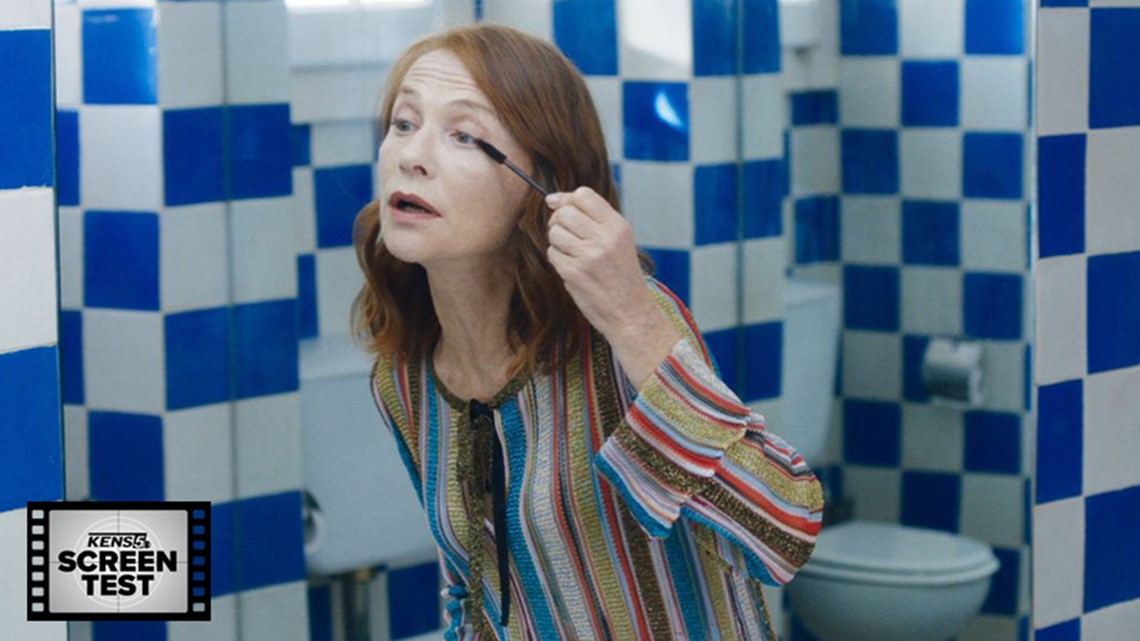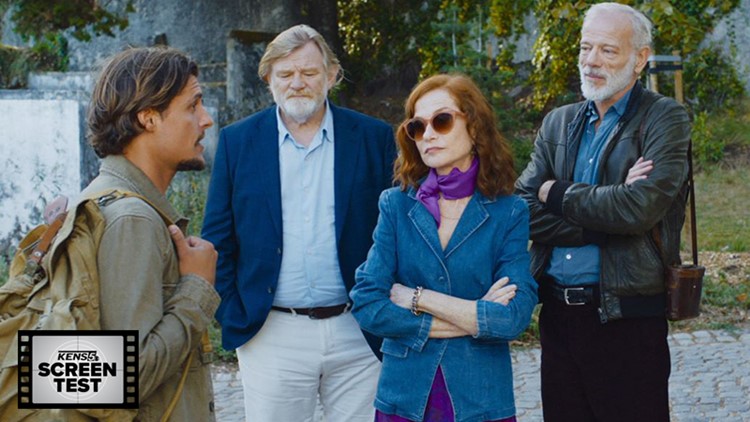“Loved? I don’t know. He liked me, and he was rich.”
The line, uttered early in Ira Sachs’s small, contemplative new movie “Frankie,” is a verbal shrug from Isabelle Huppert’s titular actress, and it encapsulates the mood the Memphis-born filmmaker is going for. His latest is stuffed with similar fleeting, retroactive observances of love and life, tinging the movie with an airy melancholy. Everything about “Frankie” is unassuming and humble; none of it is to be taken for granted.
The movie’s backdrop: an idyllic Portuguese town, the kind where history feels preserved in the amber of its picturesque landscapes. But just as important as the setting of Sachs’s script – which he co-wrote with frequent collaborator Mauricio Zacharias – is his extended ensemble filling it, a who’s-who varied in age, experience, race, sex. Huppert, Brendan Gleeson and Marisa Tomei are here. So are Greg Kinnear, Jérémie Renier, Sennia Nanua. Ariyon Bakare, Vinette Robinson and Pascal Greggory fill out the guest list. The reason they’re all here, the thing connecting their visit, slowly reveals itself with time, as do the occasional details of where they’re at in their lives; some of them are related; some work in the movie business; some have been thinking about their futures; others are in limbo. There are discussion of beginnings and beginnings of endings, as well as low-key tensions that barely threaten to even nudge Sachs’s light tone. The common thread is Huppert’s Frankie, an actress in the late stages of her career who prefers to live unassumingly, but who also doesn’t turn down the chance to attend a party when recognized by a fan.
The legendary Huppert is up to her marvelous self in the performance. Her role in relation to everyone else we see becomes clear before long, but suffice to say she’s the focal point of the movie, and she brings all the grace and mysteriousness of someone who may have some plans for those around her. It’s a hell of a wonderful turn that stands out in a movie with uniformly wonderful turns.
“Frankie” isn't a cinematic specimen of high-order prestige fare and box office-busting megamovies that tend to come around this time of year. It is a pensive movie, driven by conversations between characters who parse out admiration and mutual respect (or lack thereof) in different ways. Most reliably, it’s along generational lines, bringing attention to the shape-shifting mercuriality of connection; a fluidity in the dialogue and the individual performances helps make everything feel organic, as do the sometimes-minutes-long tracking shots by cinematographer Rui Poças, whose admirable decision to refrain from any stylistic pizazz rises to the occasion of “Frankie’s” sensitive screenplay. There’s beauty in the normalcy of this lovingly-created film, in which current and former spouses of the same person chat it up like long-time friends. The tender implication is that they probably are.
Rarely does music accompany these characters’ situations – all of which are contained to a single day – but what little score there is comes by way of Dickon Hinchliffe’s beautiful piano lullabies. When “Frankie” most feels like it’s about to cross into the territory of sublime fantasy, Hinchliffe’s contributions are most apparent.


There’s a snapshot approach in the brand of filmmaking Sachs is applying here – it seems like most of the movie’s characters get the chance to interact with each other at least once, but often only once – as he ruminates on the potential for blossoming infatuation; often “Frankie” suggests, in tones equal-parts snide and warm, that romance is rarely anything more. The more the movie goes on, the more it reveals itself to be centered on impending tragedy, though nothing in it will wreck our hearts or lead to deep questions of existentialism and impermanence; Martin Scorsese’s “The Irishman,” this is not.
Sachs instead is reaching for something purely of the moment. Feeling, not resolution, is the goal, and the effect is more or less achieved by the writer-director in a film that most wouldn’t notice for its lack of A-list star power or highly-refined melodrama.
"Frankie" may ultimately end too soon for some viewers to feel fully satisfied, but the film’s elegiac last shot is a small cinematic wonder. Haunting, hopeful, holistic—the viewer’s own experiences will be the pedestal to whatever lingering effect the final moments of this movie sparks. It’s fitting, for a movie about lingering feelings, ambitions and confessions.
"Frankie" opens Nov. 22 in San Antonio, and is rated PG-13 for brief strong language and some sexual material
Starring: Isabelle Huppert, Sennia Nanua, Ariyon Bakare, Vinette Robinson
Directed by Ira Sachs
2019



